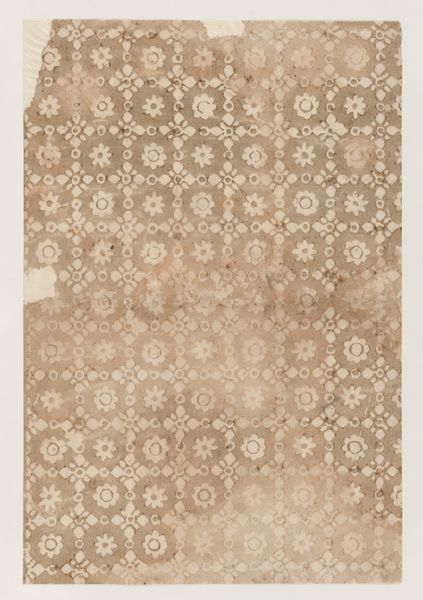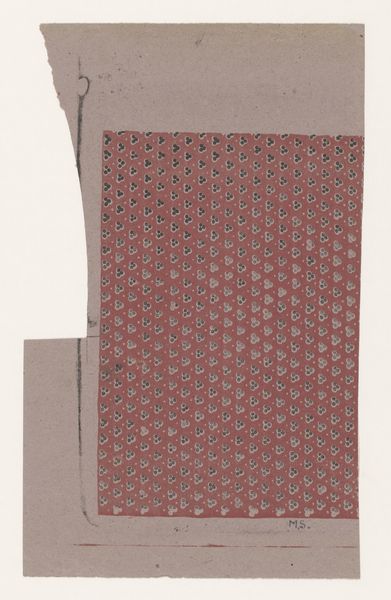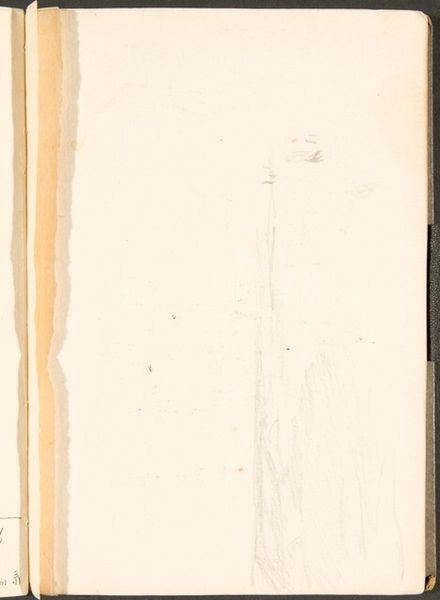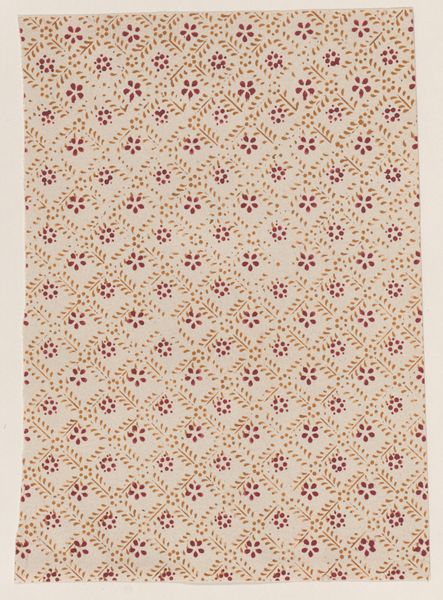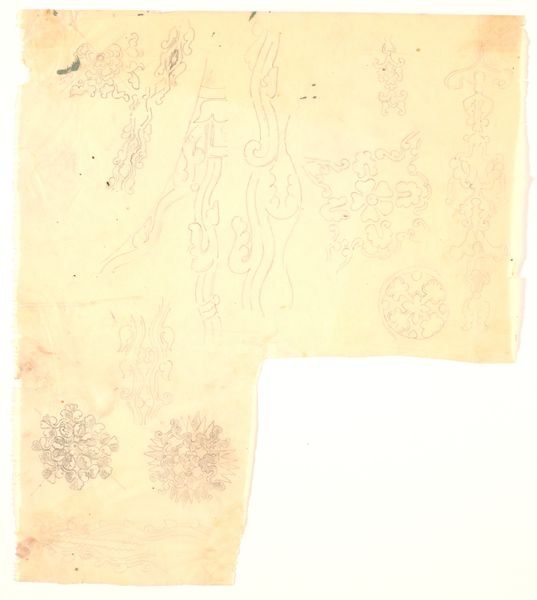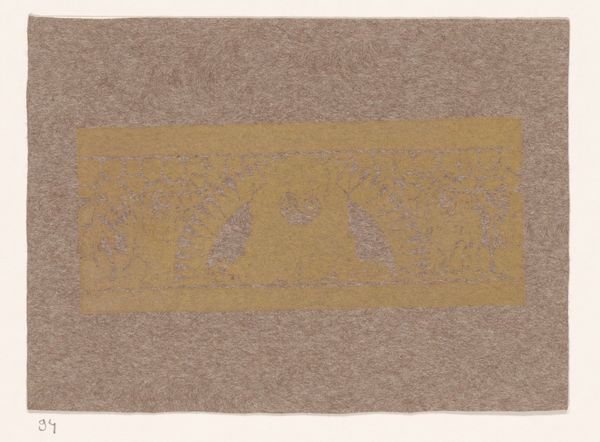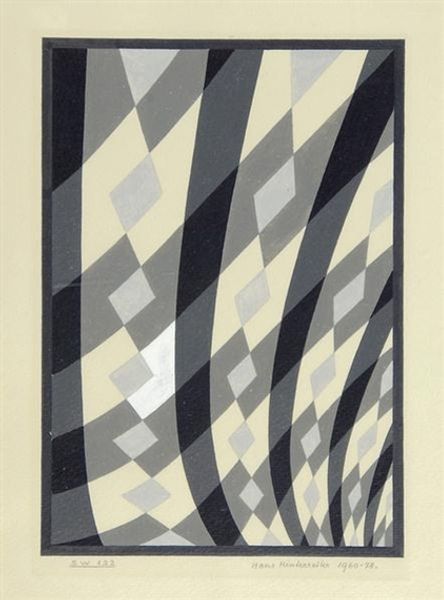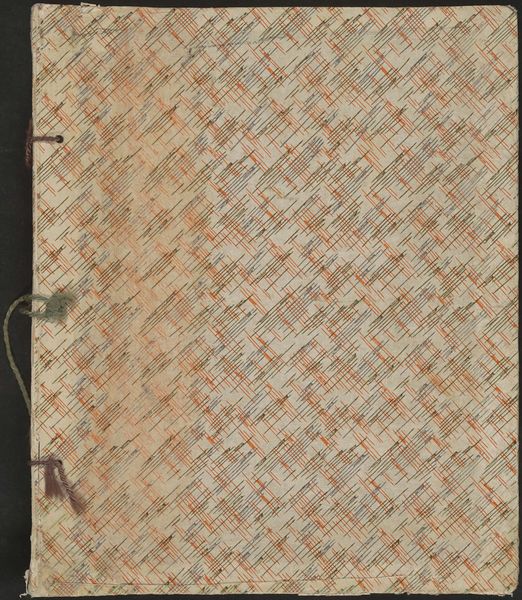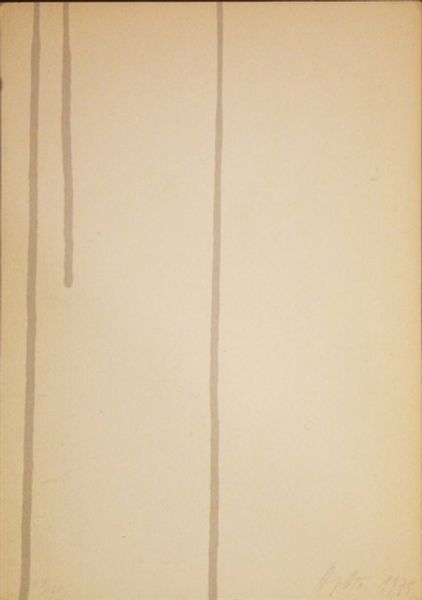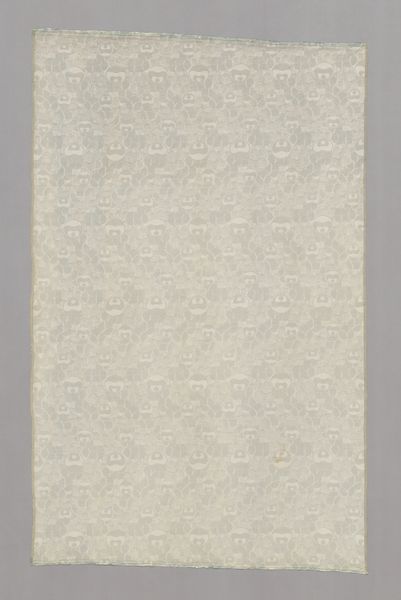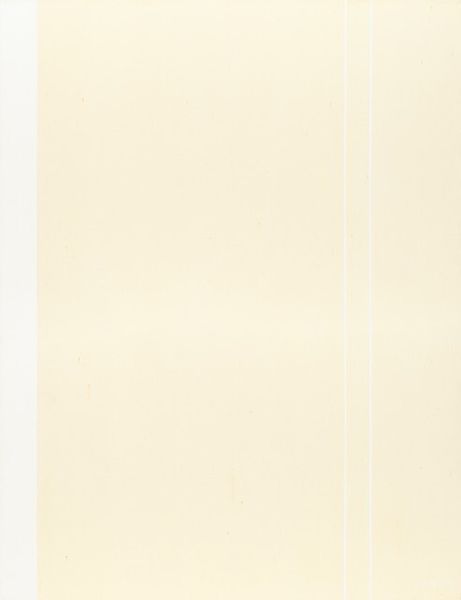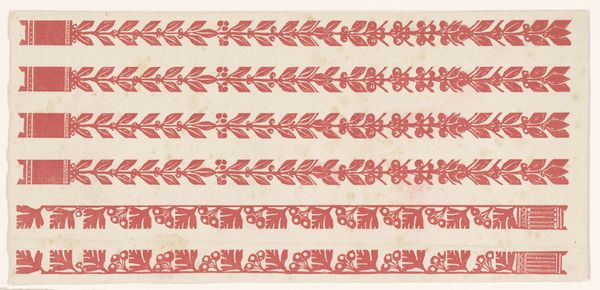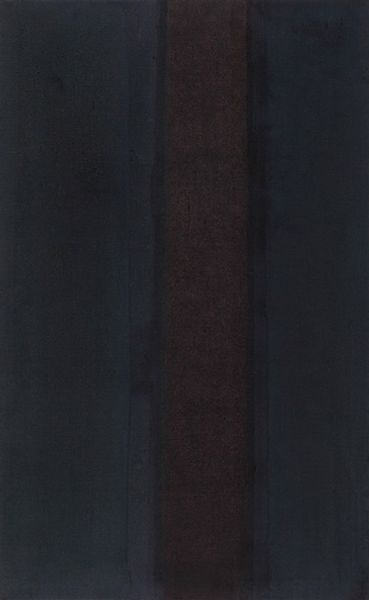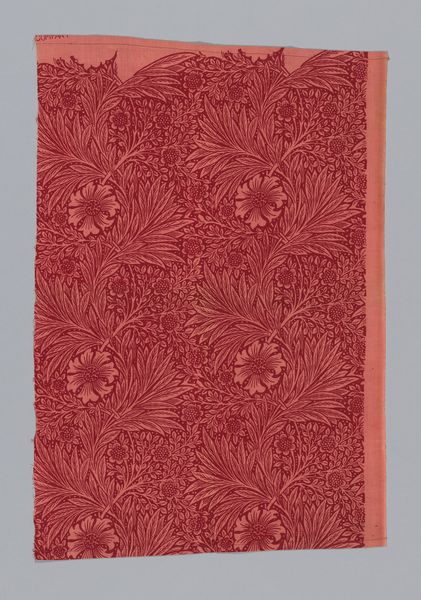
drawing, print, linocut, paper
#
drawing
#
art-nouveau
# print
#
linocut
#
paper
#
form
#
abstraction
#
line
#
decorative-art
#
watercolor
Dimensions: height 271 mm, width 60 mm
Copyright: Rijks Museum: Open Domain
Editor: Here we have Bernard Willem Wierink’s "Ornament met planten" from around 1910, a linocut on paper currently held at the Rijksmuseum. It has this wonderful, rhythmic quality… very decorative! What do you see in this piece, Professor? Curator: The rhythm you mention strikes me as important. The simplified plant form, contained within the border, speaks to the Art Nouveau embrace of nature, but with a twist. Notice how the plant form is abstracted. It almost reads like a cipher. Do you see it? Editor: Yes, almost like a code or a symbol? Curator: Precisely! Consider the broader context. Around 1910, artists were increasingly interested in exploring symbolic languages. Plants often signify growth, life, and cycles of nature. But by rendering it so abstractly, Wierink invites us to consider a deeper, perhaps even spiritual meaning. What kind of feeling do you think the piece elicits? Editor: There’s something both calming and a little unsettling. The repetition feels ordered and soothing, but the abstraction keeps it from being completely predictable. Curator: I agree. And think about linocut as a medium itself. It lends itself to bold lines and simplified forms, further emphasizing this symbolic reading. Perhaps it reflects a desire to find order and meaning in a rapidly changing world. Editor: It’s interesting how something so decorative can also feel so deeply meaningful. Curator: Absolutely. And remember, even seemingly simple images can hold complex cultural memories and desires. What a beautiful testament to Art Nouveau. Editor: I will never look at decorative art the same way! Thank you for this cultural and historical context, it's very enriching.
Comments
No comments
Be the first to comment and join the conversation on the ultimate creative platform.
